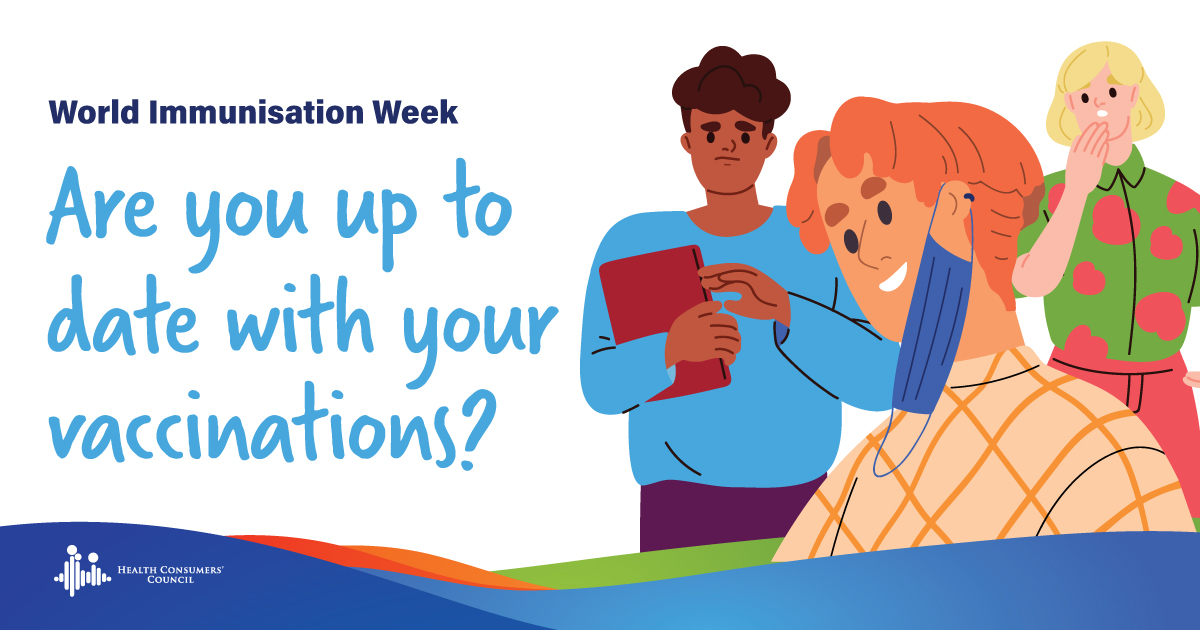
With colder weather approaching, a local measles outbreak that hasn’t yet gone away and COVID always on our minds, World Immunisation Week is a good time to check what vaccinations you might be needing.
The World Health Organisation recognises World Immunisation Week to highlight the collective action needed to protect people against diseases. The theme for 2025 is “Immunisation for All is Humanly Possible” and celebrates that over the last 50 years, essential vaccines have saved at least 154 million lives, which is 6 lives a minute, every day, for five decades.
It’s a good time to remember that vaccines aren’t just about saving lives of other people in other places, they save lives right here in our communities too.
You might have read about the “quad-demic” experienced in the US over their winter, where there were higher than usual numbers of COVID, flu, RSV and norovirus circulating at the same time, leading to consumers being pretty unwell and a hospital system under considerable pressure. A reduction in the rate of flu vaccines and vaccine hesitancy around COVID vaccines has some experts concerned that we may see a similar experience in Australia this winter.
The Department of Health issues a Virus Watch each week, and if you are interested in infectious diseases and how many of them are in our community at any given time, it is an interesting read. This year, Virus Watch has shown us that the flu is around in higher numbers than it usually is at this time of year, so it might be worth chatting to your doctor about the best time to schedule your annual flu shot.
COVID vaccines are still available, with variant-specific vaccines being rolled out frequently. The best advice recommends:
| Adults over 18 WITHOUT immunocompromise who have NOT previously received a COVID vaccine. | Single primary dose |
| Adults over 18 WITH immunocompromise who have NOT previously received a COVID vaccine | Two primary doses |
| Adults over 75 | Recommended further doses every 6 months |
| Adults 65-74 WITHOUT immunocompromise | Recommended further doses every 12 months |
| Adults 18-74 WITH immunocompromise | Recommended further doses every 12 months |
| Adults 18-74 WITHOUT immunocompromise | Can consider further doses every 12 months |
You can get your COVID vaccine from pharmacies, but talk to your doctor about whether a COVID booster would be a good idea for you.
The WA measles outbreak is well documented in the press, but for adults it can be unclear if you have received a measles vaccination, and how many you have received. The current recommendations are that measles vaccines should be given to
- children over 12 months of age
- adolescents and adults born during or since 1966 who have not received 2 doses of measles-containing vaccine, particularly
- healthcare workers
- childhood educators and carers
- people who work in long-term care facilities
- people who work in correctional facilities
- travellers
For those born before 1966 it is widely assumed that they would have encountered measles naturally as a child and are therefore likely to have natural immunity.
If you are unsure whether you have had measles or whether you have had two vaccines and are concerned about your immunity, blood testing can clarify your immune status. Talk to your GP.
Bronwyn Ife | Systemic Advocacy and Engagement Lead
For media enquiries: 0488 701 839




